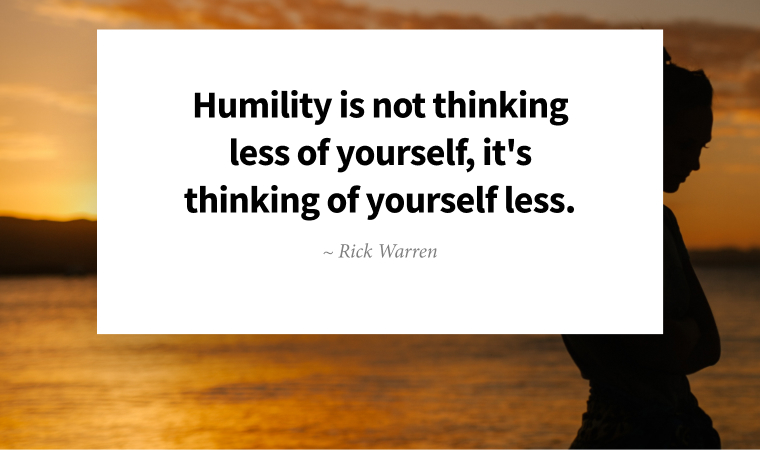
When people finally decide to turn to meditation, it’s often due to suffering. You’re stressed, anxious, and unhappy thanks to unwelcome thoughts and a mind that seems to have turned against you.
It’s actually the default mode network (DMN) inside your brain that’s working against you. When you’re thinking about the past or worrying about the future, that’s the DMN at work. It’s the opposite of being present in the current moment.
Unfortunately, the DMN tends to bubble up unpleasant memories and ideas, and studies have shown that it corresponds to negative feelings about yourself and your life. One of the most effective ways to permanently calm your DMN is a meditation practice.
On the other hand, maybe things are good. You’re in a solid place and looking to get even better. The answer once again is meditation. Professional athletes, CEOs, comedians, actors and others who live high-pressure lives turn to meditation to up their game and keep their anxiety in check.
This is why we’re kicking off our 2nd annual meditation challenge inside Well + Wealthy. This is your chance to start your meditation practice with plenty of support, guidance, and accountability, while enjoying all the other many benefits of membership.
Here’s how it works:
All you have to do to get your bliss on is to meditate or engage in a meditative practice (i.e., Tai Chi, walking meditation, etc.) for 10 minutes per day, 5 days out of 7, with no more than one missed day in between. Keep track, and you’ll share your results with the rest of the participants.
The Challenge kicks off with a live event: “How to Pick the Best Meditation Practice for You,” with our own Trudi Roth and Diana Charkalis this coming Friday, September 22nd, at 10:00 am PST.
You’ll also get instant access to the Well + Wealthy Guided Meditations Library. This is a great way to experience different forms of meditation and decide what works best for you.
This Challenge last for more than 12 weeks, but if you miss one week (i.e., Thanksgiving), no worries. Just don’t miss the next week to make sure you stay on track!
Also, Diana and Trudi lead a free group meditation weekly on Thursday evenings, 5:00 pm PST. If you’ve struggled to start (or maintain) a meditation practice in the past, these are the full array of resources you need to succeed.
Join us today and improve your life by year’s end the blissful way.
Keep going-
P.S. New to Further? Join us here.
Choline, Choline, Choline, Chooooliiine
Research shows that about 90% of Americans aren’t meeting daily adequate intake amounts for the vital element of choline. Eating more foods high in choline is one simple solution, especially because multivitamins don’t typically contain choline. That means meat, fish, and eggs, or an incredibly large amount of vegetables.
Vital Signs
“Vitality is the key to overall health, allowing us to pursue life with strength and energy. As we age, maintaining vitality becomes an even greater priority to ensure a fulfilling and active lifestyle. The good news is older adults believe themselves to have higher levels of vitality than other demographics, according to a study by Cigna.”
Why Vitality Is the Key to Aging Well
I’m a Business, Man
Generation X is the most entrepreneurial generation, and you’re most likely to succeed with your own business over the age of 45. And yet, the bug to start a business is spreading throughout age groups and the country.
American Entrepreneurship is on the Rise
From Lifespan to Hotpsan
“Old” in the headline below belongs in quotations, because no one thinks of Paul Rudd as old (even though he’s 54, which used to be old). And that way of thinking among people our age has become the norm: “Studies show that today’s older people are stronger, smarter, and think ‘younger’ than the old people of 30 years ago.”
A Humble Path to Self-Actualization

By Trudi Roth
Have you read about longevity-obsessed billionaires? If not, click away: here, here, and here for anti-aging secrets of the mega-rich. 🤣
These folks are all about physical and cognitive longevity, making me wonder: what about emotional longevity? How can you develop the resilience and adaptability necessary to accept an ever-changing world if you cling to a way of thinking that gave you the hubris to believe you can indefinitely delay death?
You don’t need $1B to aspire to a long, healthy life. But if you plan to live harmoniously with others, persist in the face of failure, and pursue long life learning, then you’ll need another element in the mix: humility.
Leggo Your Ego
Many ancient cultures, from the Greeks to the Chinese, held humility as a core virtue. Today, a growing body of psychological research points to intellectual humility as critical to individual growth and creating a functioning society where collaboration trumps contention.
Humility has fallen by the modern wayside thanks to the perception it’s the same as meekness or weakness. But science proves it has the opposite effect.
One common misperception is that having intellectual humility involves never trusting yourself — but it’s closer to the truth to say that intellectual humility is about correctly calibrating the strength of your beliefs to the evidence you’ve gathered and the limitations you face.
The benefits of cultivating this type of humility include helping you become more tolerant, resilient, and flexible — with yourself and others. It also supports elastic thinking (“Beginner’s Mind”) and curiosity, which are critical to enjoying a sense of shared humanity, regardless of differences of opinion.
Are You Ready to Humble?
Humility 101 is accepting that you don’t know everything. But this can be challenging, especially at midlife, when we’re supposed to have many, if not all, of the answers. Plus, confirmation bias, where we believe what we already know is true, is deeply ingrained by now.
Mindfulness is a surefire way to combat know-it-all-ness and enhance intellectual humility, as one of its primary functions is increasing awareness. Plus, it brings all the necessary ingredients for humble pie, including non-judgment, interdependence, compassion, and inquisitiveness. The practice also helps create a safe space to let your guard down.
In order to be willing to venture out of our bubble, to embrace our interconnectedness, and bravely encounter experiences and emotions that we routinely avoid (like uncertainty, fear, or shame), it is a necessity that we feel some degree of psychological or emotional safety to do so.
So, take it slow, and remember, building intellectual humility isn’t easy. But dismantling your habituated responses to the world to live not just a longer, healthier life but a more meaningful one, too, is a worthwhile, if humbling, endeavor.
Five Reasons Why Intellectual Humility Is Good for You (Greater Good)
The Power of Humility: Breaking Confirmation Bias for Deeper Connection, Compassion, and Learning (Mindful)
further: flashback

Dexys Midnight Runners – Come On Eileen
Too-Rye-Ay, 1982
Featuring fiddle, banjo, and an accordion, Come On Eileen would seem to be an unlikely hit. And what’s with the overalls? Still, it was a smash single and one of the most memorable songs of the 80s. (YouTube)
further: sharing

Further subscribers who share the newsletter with friends can gain three months of access to our exclusive membership community Well + Wealthy with only five referrals. Get your own free weekly dose of health, wealth, travel, and happiness advice here, and find out all the details on our referral program.
Thank you for sharing Further!
